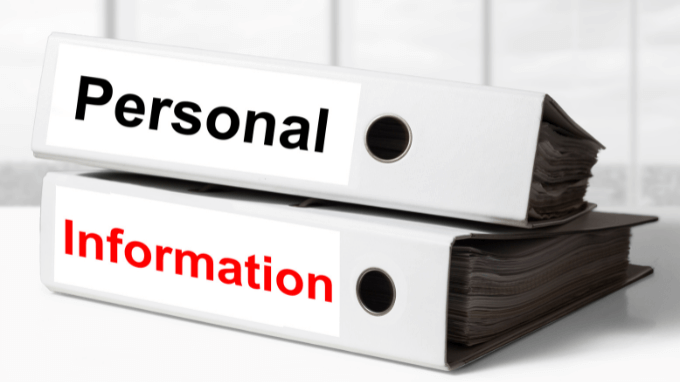When opening a brokerage account, many investors are taken aback by the extensive personal information requested. While it may seem intrusive, brokers are not asking for these details out of curiosity they are legally obligated to collect them. Regulatory bodies, such as the Securities and Exchange Commission (SEC) and the Financial Industry Regulatory Authority (FINRA), mandate strict compliance to protect investors, prevent fraud, and ensure financial transparency.
In this guide, we’ll look the key reasons brokers need personal data, the legal requirements behind these requests, and how this safeguards both investors and the financial system.
1. Legal and Regulatory Requirements
Brokerage firms operate under strict regulations to maintain market integrity and protect investors. The SEC Rule 17a-3(a)(17) under the Securities Exchange Act of 1934 requires brokers to collect and maintain specific client information, including:
- Full name
- Social Security Number (SSN) or Tax Identification Number (TIN)
- Mailing address and contact information
- Date of birth
- Employment status and occupation
- Annual income and net worth (excluding primary residence)
- Investment objectives and risk tolerance
Without this information, brokers cannot legally execute trades on behalf of clients.
Why Your Social Security Number (SSN) Is Required
Brokerages are required to report earnings, dividends, and capital gains to the Internal Revenue Service (IRS). Your Social Security number (SSN) or Taxpayer Identification Number (TIN) ensures accurate tax reporting and prevents discrepancies. Non-U.S. citizens may provide alternative government-issued identification, such as:
- Passport number
- Alien registration card
- Driver’s license (in some cases)
Failure to provide this information could result in account restrictions or even closure.
2. Suitability
A broker’s duty goes beyond executing trades—they must recommend suitable investments based on your financial situation. This principle, known as suitability, is enforced by FINRA Rule 2111.
Key Factors Brokers Assess for Suitability
- Risk tolerance (conservative, moderate, or aggressive)
- Financial goals (retirement, education, wealth preservation)
- Time horizon (short-term vs. long-term investing)
- Liquidity needs (how quickly you may need access to funds)
- Existing debt and net worth
If a broker recommends high-risk investments to a retiree seeking a stable income, they are violating suitability rules. Investors who receive inappropriate advice may have grounds for legal action.
3. Anti-Money Laundering (AML) and Counter-Terrorism Laws
To combat financial crimes, brokers must comply with AML (Anti-Money Laundering) and CTF (Counter-Terrorist Financing) regulations under the Bank Secrecy Act (BSA) and the Patriot Act.
Required Information for AML Compliance
- Full legal name
- Residential or business address (no P.O. boxes)
- SSN/TIN
- Date of birth
Brokerages cross-check this data against government watchlists to prevent identity theft, fraud, and illicit activities. If discrepancies arise (such as a stolen SSN), the account may be frozen pending investigation.
How Investors Can Protect Themselves
- Monitor credit reports for suspicious activity.
- Use identity theft protection services that track SSN usage.
- Verify brokerage legitimacy before submitting sensitive data.
4. Record-Keeping and Ongoing Compliance
SEC and FINRA rules require brokers to maintain up-to-date client records. If your financial situation changes (e.g., a new job, increased net worth, or revised investment goals), you should notify your broker to ensure recommendations remain suitable.
Why Brokers Periodically Update Your Information
- Address changes ensure you receive prospectuses and tax documents.
- Income/net worth updates help adjust investment strategies.
- Employment status changes may affect compliance (e.g., if you work for a regulated financial firm).
If you refuse to provide updated information, the broker may restrict certain services.
5. Additional Information Brokers May Request
While not always mandatory, brokers often ask for extra details to enhance service quality:
Trusted Contact Person
FINRA suggests providing a trusted contact (name, phone, address) in case of suspected financial exploitation (e.g., elder fraud or cognitive decline). This person cannot make trades but can be contacted if concerns arise.
Account Type Selection
- Cash Account: Trades are paid in full with deposited funds.
- Margin Account: Allows borrowing to trade, increasing both potential gains and risks.
Handling Uninvested Cash
Brokers may ask how you want idle cash managed—whether through:
- Dividend reinvestment plans (DRIPs)
- Sweep accounts (automatically moved to interest-bearing options)
6. Online Brokerages: Security and Due Diligence
With the rise of digital trading platforms, investors must ensure their data is secure.
Red Flags to Watch For
- Fake trading apps designed to steal personal information.
- Unregistered brokers lacking FINRA/SEC compliance.
- Poor online reviews or lack of regulatory filings.
Best Practices for Online Investors
- Verify the broker’s registration via FINRA’s BrokerCheck.
- Use two-factor authentication (2FA) for account security.
- Avoid sharing sensitive data over unsecured channels (e.g., email or social media).
Why Compliance Benefits Investors
While providing personal data may feel invasive, these regulations exist to:
✔ Prevent fraud and identity theft
✔ Ensure brokers recommend suitable investments
✔ Comply with tax and anti-terrorism laws
✔ Maintain accurate financial records
Before opening an account, research your broker’s reputation and regulatory standing. If uncomfortable with data requests, ask how the information will be used and stored.
By understanding these requirements, investors can trade with confidence, knowing their financial security is protected.
Disclaimer: This article is for informational purposes only and does not constitute legal or financial advice. Consult a licensed professional before making investment decisions.


